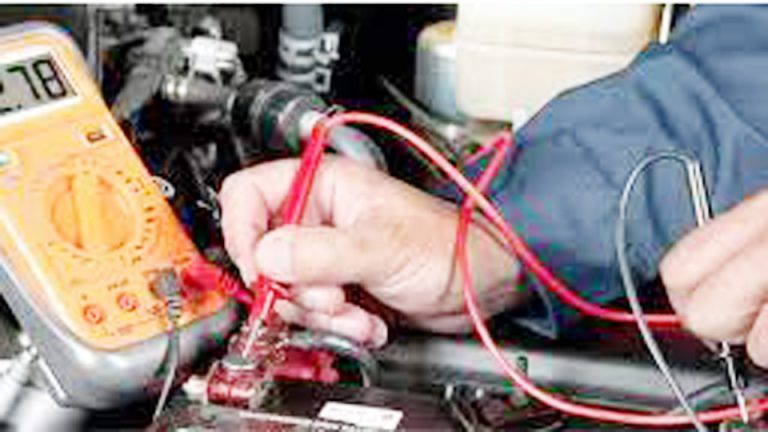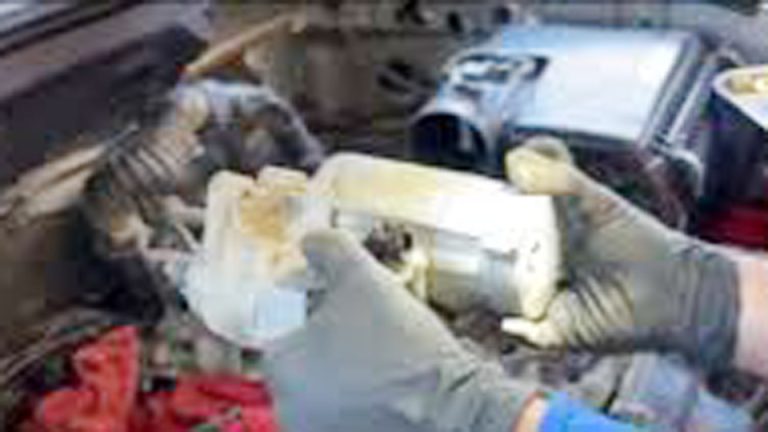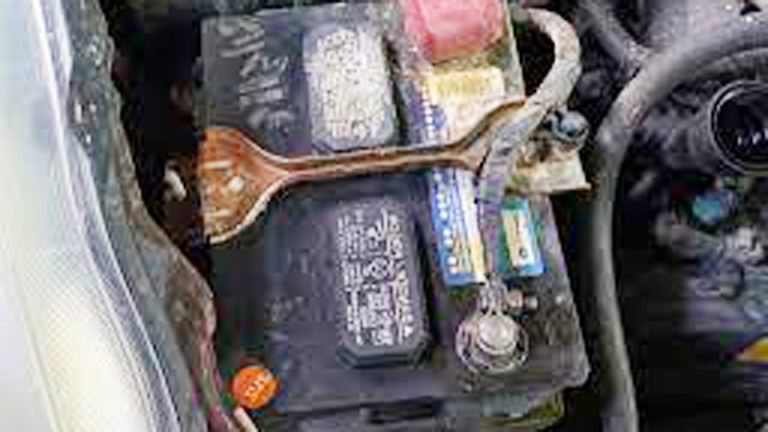It was a scorching August afternoon, and I was cruising in my 2013 Honda Accord, relying on the air conditioning to keep me cool. But then I heard it—a faint but persistent hissing noise coming from the dashboard every time the AC kicked on. At first, I brushed it off, thinking it was just the system working hard.
But the noise got louder, and the air wasn’t as cold as it used to be. I started wondering, “Why is my car AC making a hissing noise?” That question launched me into a troubleshooting adventure that taught me a lot about my car’s AC system. Let me share my story, from pinpointing the issue to fixing it, so you can tackle a similar problem with confidence.

Image by dubizzle
A hissing AC can be caused by anything from low refrigerant to a faulty component, and in my case, it was a small refrigerant leak that needed attention. The process of diagnosing and fixing it took a couple of days, a trip to the mechanic, and some DIY detective work. Here’s what I learned, step by step, to help you figure out what’s causing that annoying hiss in your car’s AC.
How Your Car’s AC Works
Before I dive into my experience, let’s talk about how a car’s AC system operates. In my Accord, the AC relies on a closed loop of refrigerant that absorbs heat from the cabin and releases it outside. The main components include the compressor, condenser, evaporator, and expansion valve.
The compressor, powered by the engine, pressurizes the refrigerant, which flows through the system to cool the air. A hissing noise usually means something’s disrupting this process—often a leak, a blockage, or a component struggling to do its job.
When I first heard the hiss, I thought it might be normal, like the sound of refrigerant moving through the system. But when the cooling started to weaken, I knew it was a problem worth investigating. If your AC is hissing and not cooling well, you’re likely dealing with a similar issue.
My First Clue: The Hiss and Weak Cooling
The hissing noise in my Accord started subtly, like a faint whisper whenever the AC turned on. I noticed it most when idling at stoplights, and it came from somewhere near the dashboard. At first, I didn’t think much of it, but after a few days, the air coming from the vents wasn’t as cold as it should be. The cabin felt stuffy, and I had to crank the AC to max just to feel a slight chill. That’s when I knew something was wrong.
I also noticed a slight oily residue on the passenger-side floor mat, which I later learned was a clue to a refrigerant leak. The combination of the hissing noise, weak cooling, and that residue pointed to a problem in the AC system, but I needed to narrow it down.
Diagnosing the Hiss: My Troubleshooting Process
I’ve always enjoyed tinkering with my cars, so I started troubleshooting in my garage. My first step was to check the AC system’s basics. I turned on the AC and listened closely. The hiss was loudest when the compressor engaged, which happens when you first turn on the AC or when it cycles on and off. I popped the hood to inspect the AC lines and compressor for any obvious signs of trouble, like loose fittings or oil stains, which can indicate a refrigerant leak.
Next, I checked the AC’s performance. I used a cheap thermometer to measure the vent temperature—it was 55°F, way warmer than the 40°F you’d expect from a healthy AC. That confirmed the system wasn’t cooling properly.
I suspected low refrigerant, which can cause a hissing noise as the system struggles to circulate enough fluid. To be sure, I decided to take it to a mechanic with the right tools to test the system properly.
Before heading to the shop, I tried a DIY trick: I sprayed soapy water on the AC lines and fittings under the hood to check for leaks. If bubbles form, it means refrigerant is escaping. I didn’t see any bubbles, but that didn’t rule out a leak in the evaporator, which is inside the dashboard and harder to access. If you’re hearing a hiss, start with these simple checks to get a sense of the problem.
What I Learned About Hissing Noises in Car AC Systems
Talking to my mechanic and doing some research helped me understand the common causes of a hissing AC. Here’s what I found:
Low Refrigerant: This was my issue. A small leak in the evaporator was letting refrigerant escape, causing a hissing sound as the low-pressure gas moved through the expansion valve.
Faulty Expansion Valve: The expansion valve controls refrigerant flow. If it’s stuck or clogged, it can hiss as the refrigerant struggles to pass through. Mine was fine, but it’s a common culprit.
Compressor Issues: A worn compressor clutch or internal seals can cause hissing if the compressor is overworking or failing. I ruled this out after my mechanic tested it.
Air in the System: If air gets into the AC lines (often after a bad recharge), it can cause hissing as the system tries to function. Proper evacuation prevents this.
Loose Fittings or Damaged Lines: Leaks from fittings or cracked lines can hiss as refrigerant escapes. I checked for this but found no issues under the hood.
Here’s a table summarizing the causes I explored and how I addressed them:
| Cause | Symptoms | How I Checked |
|---|---|---|
| Low Refrigerant | Hissing, weak cooling, oily residue | Mechanic tested pressure, found evaporator leak |
| Faulty Expansion Valve | Hissing, inconsistent cooling | Mechanic inspected valve (no issues) |
| Compressor Issues | Hissing, loud cycling, poor cooling | Mechanic tested compressor (functional) |
| Air in System | Hissing, reduced efficiency | System evacuated during repair |
| Loose Fittings/Lines | Hissing, visible oil stains | Checked with soapy water (no leaks found) |
Fixing the Hiss: My Repair Journey
Once I suspected low refrigerant, I took my Accord to a local shop that specializes in AC repairs. The mechanic started with a pressure test to check the refrigerant levels. Sure enough, they were low, confirming a leak.
To find it, he added a UV dye to the system and ran the AC for a bit. After a day of driving, I brought the car back, and he used a UV light to spot the leak. It was coming from the evaporator, which is buried deep in the dashboard—a tough spot to access.
Fixing the evaporator was no small job. It took about four hours because the mechanic had to remove parts of the dashboard to get to it. The total cost was $650—$200 for the evaporator, $400 for labor, and $50 for refrigerant and dye.
They also evacuated the system to remove any air and recharged it with fresh refrigerant. When I picked up the car, the AC was blowing ice-cold air at 38°F, and the hissing noise was gone. It was a relief to drive in comfort again, especially in the summer heat.
I considered a DIY recharge with a store-bought kit, but I’m glad I didn’t. Those kits can overpressurize the system or introduce air, making things worse. The professional fix was worth it for the long-term reliability.
Challenges I Faced and Lessons Learned
This wasn’t a straightforward fix, and I hit a few bumps along the way. First, I underestimated the hissing noise, thinking it was normal at first. If I’d acted sooner, I might’ve caught the leak before it got worse.
Second, I didn’t realize how tricky evaporator leaks are to diagnose without the right tools. My soapy water test was useless for a leak inside the dashboard.
Another challenge was the cost. I got quotes ranging from $500 to $900 for the repair, and one shop suggested replacing the entire AC system for $1,500, which was overkill. Shopping around saved me a few hundred bucks.
Finally, I learned that regular AC maintenance—like checking refrigerant levels every couple of years—can catch issues early and prevent costly repairs.
Factors That Affect AC Hissing and Repair Costs
Through this process, I learned that several factors influence why an AC might hiss and how much it costs to fix:
Location of the Leak: My evaporator leak was expensive because it required dashboard disassembly. A leak in an accessible line would’ve been cheaper.
Car Make and Model: Some cars, like my Accord, have complex AC systems that take longer to repair. Simpler systems in smaller cars might cost less.
Mechanic’s Rates: Labor rates in my area were $100–$150 per hour. In bigger cities, expect higher costs, which can drive up the bill.
Part Quality: Using a quality replacement part, like my OEM evaporator, ensures durability but costs more than aftermarket options.
Tips for Dealing with a Hissing AC
Based on my experience, here are some practical tips to help you handle a hissing AC:
Listen Closely: If the hissing happens when the AC cycles, it’s likely low refrigerant or an expansion valve issue. Note when it occurs to help your mechanic.
Check Cooling Performance: Use a thermometer to measure vent temperature. If it’s above 45°F, your system isn’t cooling properly, and you need a professional check.
Avoid DIY Recharges: Store-bought refrigerant kits can cause more harm than good. I skipped this and went straight to a mechanic, which saved me from potential mistakes.
Get Multiple Quotes: I called three shops and saved $250 by choosing the one with a fair price and clear explanation.
Maintain Your AC: Have your AC system checked every two years to catch leaks or low refrigerant early. It’s cheaper than major repairs.
Frequently Asked Questions
Why is my car AC making a hissing noise?
In my Accord, the hissing was caused by a refrigerant leak in the evaporator. Low refrigerant, a faulty expansion valve, or air in the system can also cause hissing, often with weak cooling.
Can I drive with a hissing AC?
I drove with the hissing for a week, but it wasn’t smart. The leak weakened my AC’s performance, and driving with low refrigerant can damage the compressor. Get it checked quickly.
How much does it cost to fix a hissing AC?
My repair cost $650 to replace the evaporator and recharge the system. Costs can range from $200 for a simple recharge to $1,000 for major component replacements, depending on the issue.
Can I fix a hissing AC myself?
I tried checking for leaks with soapy water, but the evaporator leak was too hard to access. Simple fixes like tightening fittings are doable, but most AC repairs need a mechanic’s tools and expertise.
How can I prevent AC hissing noises?
I now have my AC system checked every two years to catch leaks early. Regular maintenance, like ensuring proper refrigerant levels and inspecting lines, can prevent hissing and costly repairs.




